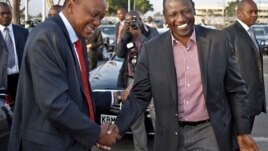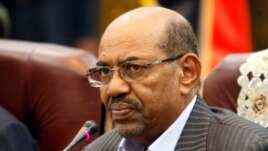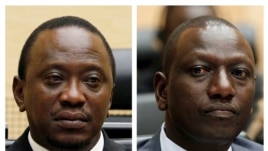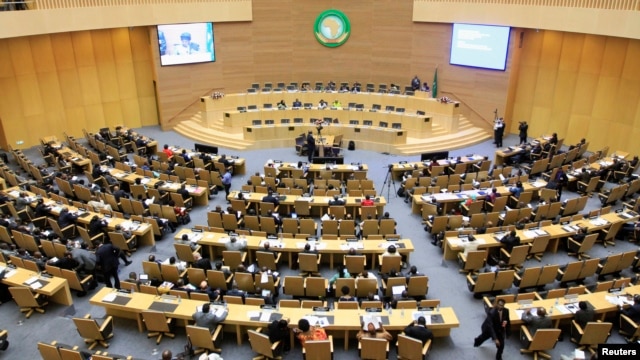Sunday, 27 October 2013
Saturday, 26 October 2013
Read more here: http://www.idahostatesman.com/2013/10/26/2834322/vincent-kituku-treasure-valley.html#storylink=cpy
Monday, 21 October 2013
BANKING FRAUD INVESTIGATION 020-221891
BURUBURU POLICE STATION 020-792900
CENTRAL POLICE STATION 020-222222
CID HEADQUARTERS 020-2713311 020-2728880
DANDORA POLICE STATION 020-794231 0721-326999
EMBAKASI POLICE STATION 020-823210 0721-359999
GIGIRI POLICE STATION 020-521353 0721-363999
GITHURAI POLICE STATION 0721-246999
HARDY POLICE STATION 020-891225 0721-328999
INDUSTRIAL AREA POLICE STATION 020-541950 0721-362999
JAMHURI POLICE STATION 020-565621 020-565621
JOGOO RD.POLICE STATION 020-557959 0721-245999
JOMO KENYATTA AIRPORT 020-823888
KABETE POLICE STATION 020-6322222 0721-365999
KAMKUNJI POLICE STATION 020-226640 0721-244999
KAREN POLICE STATION 020-882538 0721-336999
KASARANI POLICE STATION 020-803336 0721-328999
KAYOLE POLICE STATION 0721-232999
KILELESHWA POLICE STATION 020-560533 0720-370999
KILIMANI POLICE STATION 020-2722223 0721-368999
LANGATA POLICE STATION 020-501916 0721-239999
MUTHAIGA POLICE STATION 020-762711 0721-356999
MUTHANGARI POLICE STATION 020-441949 0721-369999
NAIROBI AREA POLICE 020-272420 0721-233999
NJIRU POLICE STATION 0721-231999
PANGANI FLYING SQUAD 020-760322 0721-355999
PARKLANDS POLICE STATION 020-745538 0721-364999
POLICE CONTROL ROOM 020-2724201
POLICE HOTLINES 020-240000 020-240800 020-335124
POLICE NAIROBI AREA HEADQUARTERS 020-272420 020-2717777 020-2724202-8
RIRUTA POLICE STATION 020-560921 0721-324999
RUARAKA POLICE STATION 020-802222 0721-357999
RUNDA POLICE STATION 020-513404 0721-367999
SHAURIMOYO POLICE STATION 020-543741 0721-325999
SPRING VALLEY POLICESTATION 020-581042 0721-366999
Tuesday, 15 October 2013

The six men that the ICC chose to prosecute all came from just two tribes. Kenyans widely believe that other names, from other tribes, were in Judge Waki's still-secret envelope. Githongo says the ICC could have had perfectly sound legal reasons to choose just those six, but in limiting itself to trying people only from those two tribes, he says, the ICC made itself vulnerable to the charge of tribal favoritism."It doesn't understand the nuances of Kenyan tribal alliances and politics," he says from his office at Ni Sisi. "It takes evidence and says, 'OK we can build a case against these six guys.' "
Monday, 14 October 2013
Joseph Kabila, Congolese, President, Democratic Republic of Congo

Mark Shuttleworth, South African, Founder, Ubuntu
Acha Leke, Cameroonian, Partner, Mckinsey & Company
David Munro, South African, Chief Executive Officer, Corporate and Investment Banking, Standard Bank Group

Julius Malema, South African, President of the ANCYL

Fred Swaniker, Ghanaian Founder, African Leadership Academy
 Swaniker- Founder, African Leadership Academy Fred Swaniker, 34, a Ghanaian-born serial entrepreneur, Business consultant and Mckinsey alumnus is the founder of the African Leadership Academy- a World-class coeducational, residential secondary boarding school in Johannesburg, South-Africa which recruits outstanding students from across Africa and prepares them for a future of leadership. Fred Swaniker is a TED and Echoing Green Fellow.
Swaniker- Founder, African Leadership Academy Fred Swaniker, 34, a Ghanaian-born serial entrepreneur, Business consultant and Mckinsey alumnus is the founder of the African Leadership Academy- a World-class coeducational, residential secondary boarding school in Johannesburg, South-Africa which recruits outstanding students from across Africa and prepares them for a future of leadership. Fred Swaniker is a TED and Echoing Green Fellow.James Mworia, Kenyan, Chief Executive Officer, Centum Investments

Andry Rajoelina, Malagasy, Transitional President, Madagascar

Gachao Kiuna, Kenyan, CEO, Transcentury Group

Euvin Naidoo, South African, President of the South African Chamber of Commerce in America
Sunday, 13 October 2013
Tedros Adhanom said that the African Union would request the trial be deferred under article 16 of the court's Rome Statute that allows a delay of a year subject to renewal and would request a postponement if that demand was not agreed.
 Before departing for AU summit in Addis Ababa, Kenyan President Kenyatta, left, with Deputy President Ruto, Nairobi, Kenya, Oct. 12, 2013.
Before departing for AU summit in Addis Ababa, Kenyan President Kenyatta, left, with Deputy President Ruto, Nairobi, Kenya, Oct. 12, 2013.Earlier, foreign ministers of the 54-member African Union agreed that sitting heads of state should not be tried by the Hague-based court.
"It should be underscored that our goal is not and should not be a crusade against the ICC, but a solemn call for the organization to take Africa's concerns seriously," Ethiopian Prime Minister Hailemariam Desalegn said in an opening address.
Leaders meeting in Addis Ababa at the AU headquarters are expected to endorse the recommendations hammered out by ministers in Friday's meeting that extended past midnight.
Following that session, Ethiopian Foreign Minister Tedros Adhanom said trying Kenya's president and his deputy infringed on that nation's sovereignty. The two men deny charges that they orchestrated a killing spree after a disputed 2007 election.
Frustration with the ICC has been growing in Africa because the court has convicted only one man, an African warlord, and all others it has charged are also Africans.
The ministers did not call for a mass walk-out from the court's jurisdiction, however. Officials previously said that idea would be on the agenda but it did not draw broad support among the continent's 34 signatories to the court's Rome Statute.
Rights groups had urged African nations not to turn their backs on the court, which they say is vital to ending what they see as a culture of impunity in African politics.
Hailemariam told gathered leaders that the court and the U.N. Security Council had showed a "double standard" in the way it treated Africa and said earlier African requests for deferring cases had been ignored.
"It is indeed very unfortunate that the court has continued to operate in complete disregard of the concerns that we have expressed," he said.
Ethiopia's foreign minister said a group led by the AU chair, now Ethiopia, with members from Africa's five regions would press the U.N. Security Council to defer proceedings against Kenya's leadership and the Sudanese president.
'Demanding respect'
 Sudan's President Omar al-Bashir speaks during a one-day summit in Khartoum, Sept. 3, 2013
Sudan's President Omar al-Bashir speaks during a one-day summit in Khartoum, Sept. 3, 2013"We underscored that sitting heads of state and governments should not be prosecuted while in office," Ethiopia's Tedros said, adding a one-year delay was being requested under article 16 of the Rome Statute.
Ministers called for using video links in the Kenyan trials to ensure leaders could carry on their official duties.
 An April 2011 Combination picture shows Kenya's Uhuru Kenyatta, who was finance minister, and William Ruto, former Higher Education Minister at the International Criminal Court (ICC) in The Hague.
An April 2011 Combination picture shows Kenya's Uhuru Kenyatta, who was finance minister, and William Ruto, former Higher Education Minister at the International Criminal Court (ICC) in The Hague."Demanding respect is the least Africa can do, but I also don't like to see this mistaken for - as we have seen with some of the detractors of this exercise - that Africans are supporting impunity. We don't," Rwandan Foreign Minister Louise Mushikiwabo told Reuters.
Those comments were echoed by Ethiopia's premier and others.
After wrangling over wording on Friday, one senior delegate described the result as a "good compromise". Kenya said it had not sought a walk-out but said others had supported the idea.
Some Africans, including officials from heavyweights South African and Nigeria, had prior to the meeting indicated there was not broad backing for a walk-out from a court that received the backing of many Africans when it was set up.
London-based rights group Amnesty International urged African nations meeting in the Ethiopian capital not to cut ties with the court, saying victims of crimes deserved justice.
"The ICC should expand its work outside Africa, but it does not mean that its eight current investigations in African countries are without basis," Amnesty's deputy director of law and policy, Tawanda Hondora, said in a statement.
Kenyan Foreign Minister Amina Mohamed said she was satisfied with the outcome of Friday's talks, adding that immunity for a sitting president was "a principle that has existed for a long time" in international law.
Lawyers for Kenyatta asked on Thursday that his trial on charges of crimes against humanity be abandoned, saying defense witnesses had been intimidated.
Ruto went on trial in The Hague last month and Kenyatta's trial is due to start on Nov. 12.
Friday, 11 October 2013
Friday, 4 October 2013
Thursday, 3 October 2013
 The Gambian government announced on Wednesday that the
former British colony is pulling out of the Commonwealth with immediate
effect, saying it would "never be a member of any neo-colonial
institution".
The Gambian government announced on Wednesday that the
former British colony is pulling out of the Commonwealth with immediate
effect, saying it would "never be a member of any neo-colonial
institution"."(The) government has withdrawn its membership of the British Commonwealth and decided that the Gambia will never be a member of any neo-colonial institution and will never be a party to any institution that represents an extension of colonialism."
The Commonwealth bloc is a voluntary association of more than 50 countries, many of them former territories of the British empire.
No further details were given but a foreign ministry official, speaking on condition of anonymity, said that the decision came after the government rejected a proposal by the Commonwealth last year to create commissions in Banjul to protect human rights, media rights and fight against corruption.
The proposal followed an April 2012 visit to the Gambia by Commonwealth Secretary General Kamalesh Sharma, during which he met with President Yahya Jammeh and other top government officials.
Jammeh, who is regularly accused of rights abuses, has ruled mainland Africa's smallest country with an aura of mysticism and an iron fist since seizing power in 1994.
Earlier this year, the Gambia was singled out for its poor rights record in Britain's annual Human Rights and Democracy report, which cited cases of unlawful detentions, illegal closures of newspapers and radio stations and discrimination against minority groups.
A spokesperson at the British Foreign and Commonwealth Office said early Thursday: "We would very much regret Gambia, or any other country, deciding to leave the Commonwealth."
He noted however that "decisions on Commonwealth membership are a matter for each member government".
The Gambia is a tiny sliver of land wedged into Senegal. It suffers from widespread poverty but its miles of palm-fringed beaches are a favourite among sun-seeking European tourists.
The west African anglophone nation, the smallest on the mainland, has long been dogged by rights concerns under Jammeh's administration.
Jammeh, who seized power in a 1994 coup, brooks no criticism. He has been re-elected to power three times.
The man who claims he can cure AIDS and other illnesses is often pilloried for rights abuses and the muzzling of journalists.
In 2010, the EU, the country's top aid donor, cancelled $30 million in budget support for Banjul because of concerns over human rights and governance.
In August 2012, Jammeh came under attack from Amnesty International and others for sending nine prisoners to the firing squad and promising many more would go the same way.
Many top officials have found themselves charged with treason, often related to coup plots which observers have said are a sign of paranoia by Jammeh, who has woven an aura of mysticism around himself, dressing in billowing white robes and always clutching his Koran.
Last year he warned foreign diplomats that his country would not be "bribed" with aid to accept homosexuality.
"If you are to give us aid for men and men or for women and women to marry, leave it.
"We don't need your aid because as far as I am the president of the Gambia, you will never see that happen in this country," he said.
In January this year Jammeh accused the European Union of trying to destablise Gambia, after the EU set out a 17-point checklist of demands for reforms.
They included calls for Gambia to abolish the death penalty and to re-open newspapers and radio stations closed down by the authorities.
The president regularly insists that he will not bow to external pressures for reform.








